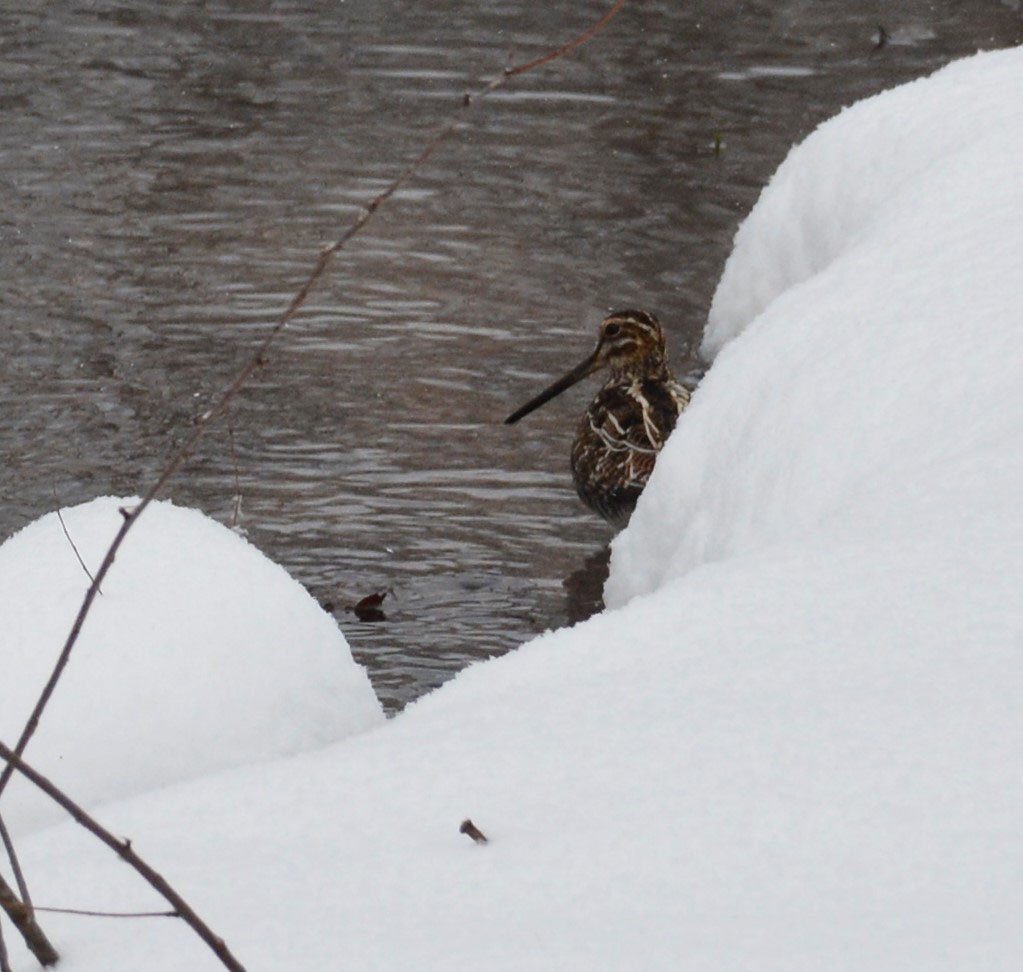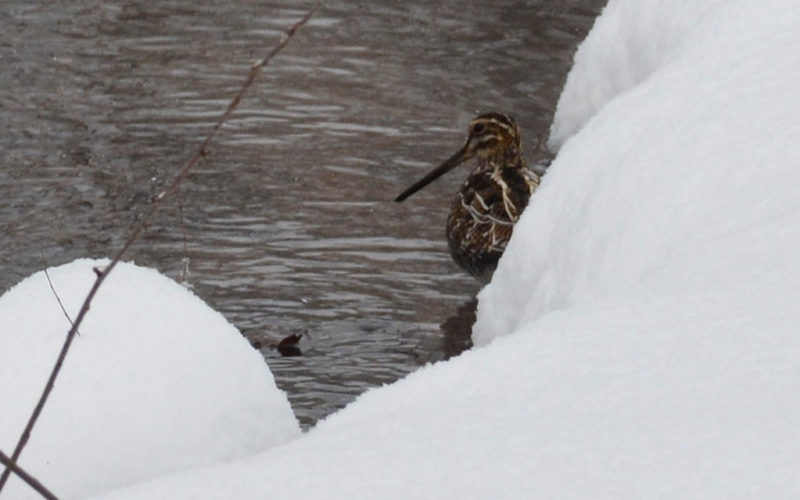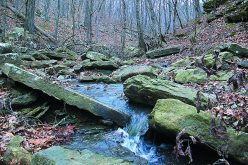AMANDA BANCROFT
Making Ripples
One bitterly cold day in February, we decided to check the pond for migrating flocks that might have gotten stranded here during the blizzard. Two dozen ducks had recently visited, but that day the pond looked vacant. Suddenly, a brown rock marbled with black and white markings moved! An incredibly long bill appeared, leading us to adorable, tiny black eyes on a small head perched on a pudgy body balanced on stick legs over the water. Our first thought during this surprise encounter was “Oh, a sandpiper-type bird!” similar to the adorable and ingenious baby plover seen in Pixar animation studio’s “Piper” short cartoon. But we associated sandpipers with warm beaches or coastlines, not inland ponds covered in almost a foot of snow at minus 20 degrees!
Upon inspection of Sibley’s Field Guide, this was indeed a member of the sandpiper family, a Wilson’s Snipe. Now we couldn’t help but laugh. Not only was a sandpiper visiting the pond in subzero winter conditions, but the mythical snipe itself! Years ago, thanks to that same famous company, Pixar, I learned about the “snipe hunting” joke in the movie “Up.” Many assume that there is no such thing as a snipe, and play a practical joke on the unaware, telling them to go hunting for a mythical bird. Ornithologists joke about this joke, being aware that the term snipe can refer to over two dozen wading bird species in the family Scolopacidae. Wilson’s Snipe is quite common, although I had never seen one before this year.
According to the online etymology dictionary, “the difficulties involved in hunting snipes gave rise to the term sniper, meaning a hunter highly skilled in marksmanship and camouflaging.” Snipes have excellent camouflage. Not only did our new neighbor blend into the background of a muddy stream, it froze when we visited and stayed that way for so long that we feared it had literally frozen due to the subzero temperatures. Eventually, it returned to feeding, plunging its bill into the mud and wading around in the water on stilt-like little legs.
Snipes can be found anywhere they can forage in mud for insect larvae, snails, worms and other prey using their long bills, and duck for cover in case of predators. These habitats include soggy fields, shorelines, marshes, swamps, streams, and the muddy banks of a pond (among others). They resemble a hybrid of a hummingbird plus a common quail, and their silhouettes in flittering flight are also reminiscent of the shape of a hummingbird, although a giant one. The Cornell Lab of Ornithology’s All About Birds website describes their hummingbird-like flight. “If you flush one, it will burst from cover with a characteristic zigzagging flight that distinguishes it from other sandpipers.”

Beware of confusing the snipe with a look-alike bird, the American Woodcock. The resemblance is uncanny, especially to this untrained birder. Besides subtle variation in markings and bill length, the most obvious difference to me was the woodcock’s neck — or lack thereof. The snipe’s neck is slender and noticeable.
Here in Northwest Arkansas, we only see snipes in winter until they return to their northern breeding grounds. All the more reason to get out there and enjoy nature even during the coldest weather and preserve wild spaces with fresh running water where the not-so-mythical snipe can continue to exist.
Amanda Bancroft is a writer, artist, and naturalist living in an off-grid tiny house on Kessler Mountain. She and her husband Ryan blog about their adventures and offer tips to those wanting to make a difference at www.RipplesBlog.org.










